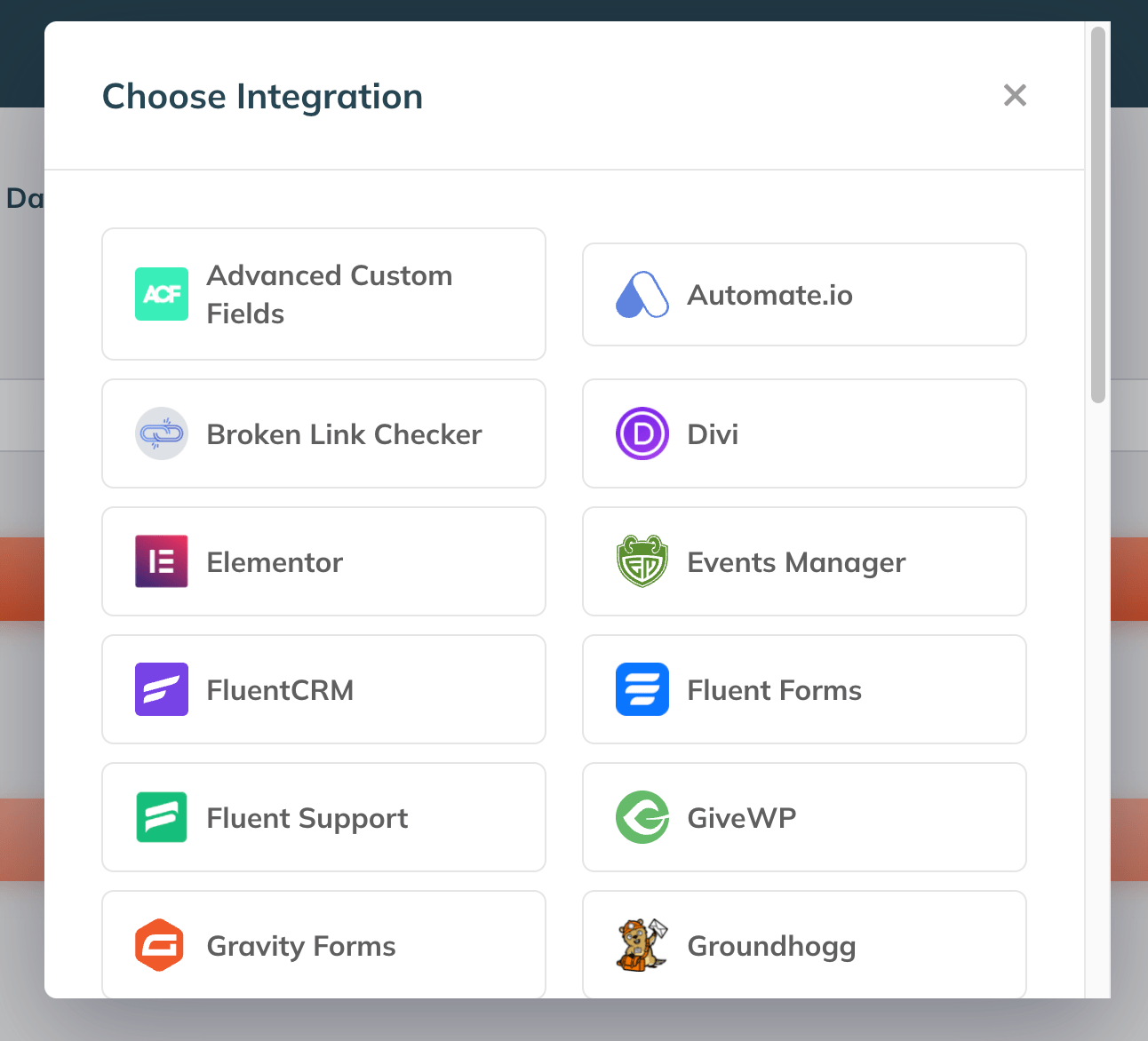This help file is dedicated to get you started using WP Webhooks.
Down below, you will find further details on each specific feature we offer, as well as on how to use it.
To access a feature, simply click on the dropdown and select what you are interested in.
General Setup
Learn how to set up WP Webhooks on your WordPress website.
To install WP Webhooks, please follow this manual.
To access and activate your license, please follow this manual.
Workflow Automation
Create your first Workflow automation. This is a multi-step workflow that can be triggered on a specific event and performs various actions afterward.
Our Flow feature allows you to create fully dynamic automation workflows to save your time and resources, just like with Zapier, Integromat, or Pabbly. To learn more about it, please see this manual.
WP Webhooks offers integrations for all of the mentioned services. To get started, simply follow this manual, but select the integration of your choice from the integration selection popup within a single Flow.
Webhook Triggers
Webhook Triggers allow you to directly send data from your website to any URL of your choice.
Triggers are what you usually know as webhooks – they are special endpoints that can send data from your website to an URL once a specific event happens. To learn more about the triggers, please see this manual.
Learn everything you need to know about how to send data to Pabbly Connect.
Learn everything you need to know about how to send data to Make (Integromat).
Learn everything you need to know about how to send data to Zapier.
Learn everything you need to know about how to send data to Integrately.
Learn everything you need to know about how to send data to Automate.io.
Learn everything you need to know about how to send data to n8n.
Learn everything you need to know about how to send data to IFTTT.
Webhook Actions
With Webhook Actions, you can receive data from any external source to a URL created by WP Webhooks.
Actions are the opposite of triggers – Instead of sending data on a specific event, they allow you to receive data from a specific URL. This way, you can execute certain events directly within your WordPress website based on what the other URL sent to it. To learn more about actions, please see this manual.
Learn everything you need to know about how to receive data from Pabbly Connect.
Learn everything you need to know about how to receive data from Make (Integromat).
Learn everything you need to know about how to receive data from Zapier.
Learn everything you need to know about how to receive data from Integrately.
Learn everything you need to know about how to receive data from Automate.io.
Learn everything you need to know about how to receive data from n8n.
Learn everything you need to know about how to receive data from IFTTT.
Learn everything you need to know about how to receive data from Zoho Flow.
Features
Learn more about the other features WP Webhooks offers. USe them to supercharge your automations in the best possible way.
Our Data Mapping feature allows you to map the data based on your needs to the structure of either WP Webhooks or your chosen external service. It allows you to make each service compatible with each other. Here are some links to our manuals:
Using our authentication feature, you can connect our webhook endpoints as well to certain APIs that require authentication. To learn more about it, please see this manual.
The log feature allows you to keep track of every incoming and outgoing data that was send or received by WP Webhooks. To learn more about it, please click here.
The Whitelist feature allows you to limit the access of incoming webhooks (Receive Data) to only chosen IP addresses or IP ranges. To read more about it, please click here.
Using the Whitelabel feature, you can change the branding of our plugin to your very own one, as well as adjust the content and visibility of features. To read more about it, please click here.
On the extensions tab, you will find a list with all of our available extensions that offer you additional features for WP Webhooks. To learn more about it, please click here.